Search Results
Showing results 521 to 540 of 1221

Irrigation Ideas
Source Institutions
In this activity, learners explore how civil engineers solved the challenge of moving water via irrigation.
Magnus Glider
Source Institutions
A design challenge that takes paper airplanes into an entirely different direction: a magnus glider uses cups and and rubber bands to create a glider that uses the same forces that a curveball (from b

Molecular Gastronomy: Use Self-Assembly to Make a Dessert Topping
Source Institutions
Molecular gastronomy is the scientific study of food preparation. Learners use self-assembly techniques to create edible capsules of chocolate syrup (food grade ingredients are required).

Give Me a Brake
Source Institutions
In this activity, learners explore the concept of how brakes can stop or slow mechanical motion.
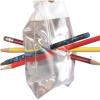
Unleakable Bag
Source Institutions
In this activity, learners explore the flexibility of polymer chains by pushing sharpened pencils through a Ziploc bag.

Coral Snapshots: Biodiversity in Marine Protected Areas
Source Institutions
In this data activity, learners analyze data from coral reef snapshots taken by scientists at the Virginia Institute of Marine Science.
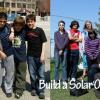
Build Your Own Solar Oven
Source Institutions
Learners follow directions to construct a solar oven that really cooks! The solar oven uses aluminum foil to reflect sunlight into a cooking chamber, which is painted black.

Paper Cup Stool
Source Institutions
In this activity, learners will explore how and why weight distribution works.
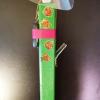
Personal Fan
Source Institutions
Cool off in the heat with this project! Learners use simple materials to build a fan that runs on a motor.
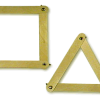
Strong Shapes
Source Institutions
Is a square stronger than a triangle? Use tongue depressors to build simple shapes. Then apply a little weight to them and see what happens!
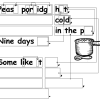
You Can Say That Again!: Text Compression
Source Institutions
This activity helps students learn how computers "compress" text by identifying repeating patterns of letters, words, and phrases.
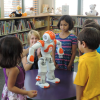
Circuits with Friends
Source Institutions
In this activity, learners explore the parts of a circuit by modeling, as a group, a “human” circuit.
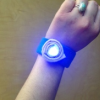
High Tech Fashion
Source Institutions
In this technology activity, learners build simple circuits, design soft circuits using conductive thread, and then sew switch-activated circuits.

Herbal Medicines
Source Institutions
In this open-ended multicultural lab activity, learners investigate the effectiveness of herbal remedies.
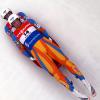
Marble Run!
Source Institutions
This activity (on page 2 of the PDF under SciGirls Activity: Luge) is a full inquiry-based challenge related to motion and design optimization.
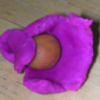
Atoms and Matter (K-2)
Source Institutions
In this activity, learners explore atoms as the smallest building blocks of matter. With adult help, learners start by dividing play dough in half, over and over again.
Magnetism
Source Institutions
In this activity, learners explore the principles of magnetism by observing how various materials interact with magnets and superconductors.

Sound Representation: Modems Unplugged
Source Institutions
In this activity, learners listen to songs and decode hidden messages based on the same principle as a modem. As a final challenge, learners decode the binary messages in a music video.

Boats Afloat
Source Institutions
In this water activity, learners build boats that float and sink. First, learners listen to the book, "Who Sank the Boat" and practice making predictions throughout the story.

Locating a Point
Source Institutions
In this activity, learners work in teams to simulate the process used by Global Positioning Systems (GPS) to determine the location of a fallen meteorite in Antarctica.
